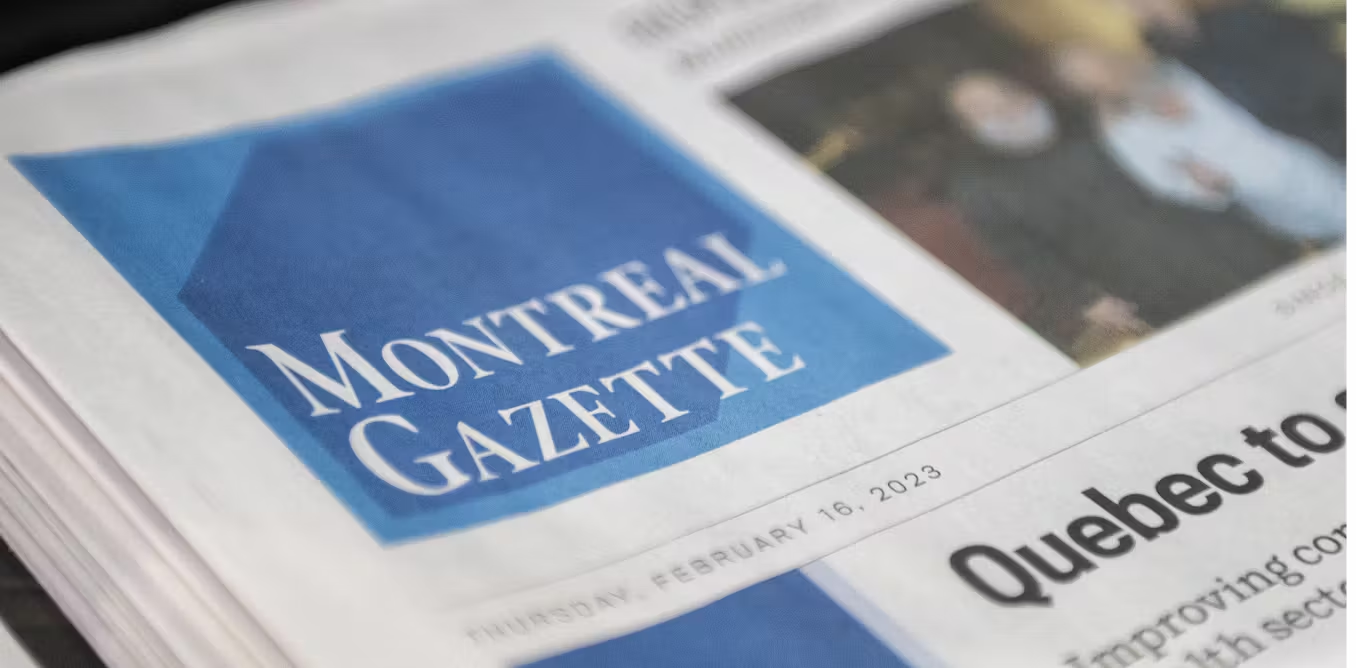The Montreal Gazette: A Storied Voice in Canadian English‑Language Journalism
Origins and Early History
- The Montreal Gazette is one of the oldest newspapers in North America. It traces its roots to 1778, when Fleury Mesplet founded La Gazette du commerce et littéraire, pour la ville et district de Montréal, a French‑language weekly. Wikipedia+2The Canadian Encyclopedia+2
- That first paper had a short life: censorship, political tension and arrests affected it. Mesplet and his editor, Valentin Jautard, were arrested for sedition, and operations were disrupted. Wikipedia+2The Canadian Encyclopedia+2
- In 1785, the paper was relaunched as La Gazette de Montréal / The Montreal Gazette, in a bilingual format (French & English). Over time, its French sections were phased out, and by 1822 it had become an exclusively English publication. Wikipedia+3Wikipedia+3The Canadian Encyclopedia+3
Role and Significance
- The Gazette is the only daily English‑language newspaper still published in Montréal, Québec. While there are French‑language dailies, The Gazette serves the anglophone community in a predominantly French province. Wikipedia+2The Canadian Encyclopedia+2
- Because of its long history, it has been a witness to—and often a participant in—major political and social shifts in Québec and Canada. Its editorial stance over time has reflected and sometimes influenced debates about language, culture, governance, and identity. Wikipedia+1
Ownership & Changes Over Time
- The Gazette has changed owners multiple times:
- Acquired by Southam in 1968. The Canadian Encyclopedia+1
- Later ownership passed through Hollinger Inc (1996), then Canwest (2000), and in 2010 it became part of Postmedia Network. The Canadian Encyclopedia+2Wikipedia+2
- In 2014, printing was outsourced, and a major printing facility in Notre-Dame-de-Grâce was closed, causing job losses. Also, the look of the paper was modernized. Wikipedia+1
- Over time, the masthead changed: in 2014 it was relaunched with “Montreal Gazette” more prominently, reflecting its public identity. More recently (December 2023), it dropped “Montreal” from the masthead, returning to “The Gazette.” Wikipedia
Recent Developments and Challenges
- Like many traditional newspapers, The Gazette is facing the pressures of changing media consumption habits, rising costs (printing, distribution), and declining print revenues. Global News+1
- In September 2022, for example, Postmedia announced that the Monday print edition of the Gazette would be discontinued (as of October 2022), shifting that version to digital. This was explicitly to respond to changes in reader habits and the cost structure of print media. Global News
- Staffing cuts and layoffs have also been reported. The newsroom has shrunk, affecting its capacity for local journalism. The issue of “ghost newspapers” (publications that still exist in name but reduced substantially in content and newsgathering) is sometimes raised in discussions of The Gazette’s future. The Conversation
- There has also been interest in local ownership: in early 2023 there was news that a local businessman (Mitch Garber) showed interest in acquiring The Gazette, concerned about its role as the anglophone daily in Montréal and its declining resources. The Conversation
Impact & Community
- Because it serves the English‑speaking community in Québec, The Gazette plays an important role in providing news, opinion, culture, and connection for anglophones who might otherwise have less access to media in their language. It also serves as a bridge for non‑French speakers to local issues.
- Its historical significance (over two centuries of continuous (if evolving) publication) gives it cultural value beyond simply its news content. It is part of the civic heritage of Montréal and Québec.
What the Future Might Hold
- The Gazette will likely continue to need to balance its print and digital offerings, possibly reducing print further as costs rise and readership shifts.
- Increasingly, the question of how journalism can be sustained—through new business models, public support, local ownership, or nonprofit structures—is likely to be central for it, as for many legacy media institutions.
- There is also the challenge of maintaining local journalism: having enough reporters, local coverage, editorial independence, and trust, all while under financial pressure.














Post Comment